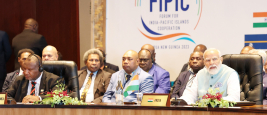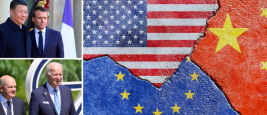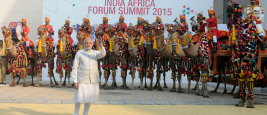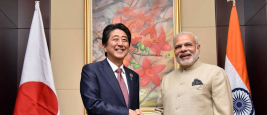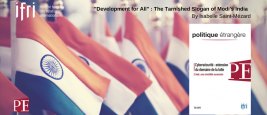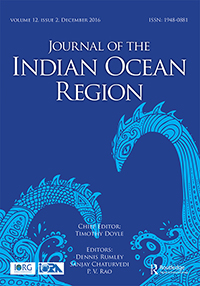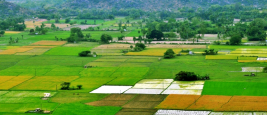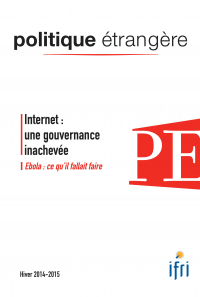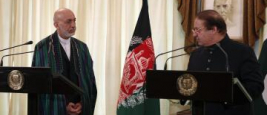
Isabelle SAINT-MEZARD
Associate Research Fellow, Center for Asian Studies
Research Interests:
- Geopolitics of South Asia
- India's strategic and security issues
- Indo-Pacific concept
Isabelle Saint-Mézard (PhD) is a lecturer in the Geopolitics of Asia at the French Institute of Geopolitics, the University of Paris VIII. She was formerly an analyst on South Asia at the Directorate for Strategic Affairs of the French Ministry of Defence (2006-2011). She was also a research fellow on the China-India Project at the Centre of Asian Studies/ Institute of Humanities, the University of Hong Kong (2003-2006). She holds a Ph.D. in international relations from the Institut d'Etudes Politiques de Paris.
Her research interests are mostly about South Asian geopolitics, with a special focus on India’s strategic and security issues. She has also begun expanding her research on the Indo-Pacific concept and published a book entitled Géopolitique de l'Indo-Pacifique (PUF 2022).
Prime Minister Narendra Modi’s maiden visit to Papua New Guinea (PNG) on May 20-21, 2023, is a testament to India’s international positioning and search for a global role. In Port Moresby, Modi co-chaired the third Forum for India-Pacific Islands Cooperation (FIPIC) and announced a series of...
As French President Emmanuel Macron (accompanied by Ursula von der Leyen) is on a state visit to China, some twenty Ifri researchers decipher the stakes of the U.S./China/Europe strategic triangle.
Due to historical as well as geographical reasons, India and East Africa have long been close partners. In the recent period however, and even more so since the early 2000s, these ties have tightened as a result of combined efforts by the government of India and its business community. <...>
China increasingly sees its flagship foreign policy project as a tool for restructuring global governance and a vector for promoting a new form of globalization.
The Asia–Africa Growth Corridor (AAGC) — a Japan–India initiative to promote connectivity between Asia and East Africa and encourage joint projects in Africa — is often misrepresented. All too often, the AAGC is depicted as a political move aimed exclusively at countering China’s Belt and Road...
In the last decade, the strengthening of the India-Japan strategic partnership has been primarily driven by geopolitical considerations, in an era of competing regional visions and influence.
Narendra Modi’s BJP (Bharatiya Janata Party) has held an unprecedented majority since the 2014 elections.
Since the Modi government came to power in June 2014, it has invested diplomatic capital in announcing the transformation of India’s ‘Look East’ policy into a new ‘Act East’ policy.
India is now a major player in the international fertiliser market, regardless of the nutrients considered. Whether it is a question of imports, domestic production, or consumption, India ranks among the top three global players in the sector.<...>
The Indian People’s Party (BJP) coming to power in the 2014 legislative elections raises many questions about the country’s governance.
Etat des lieux des conséquences de l’évolution de la situation en Afghanistan, à l’heure des élections présidentielles afghanes et du départ des troupes américaines. Regard sur les nouvelles stratégies diplomatiques d’Islamabad.




